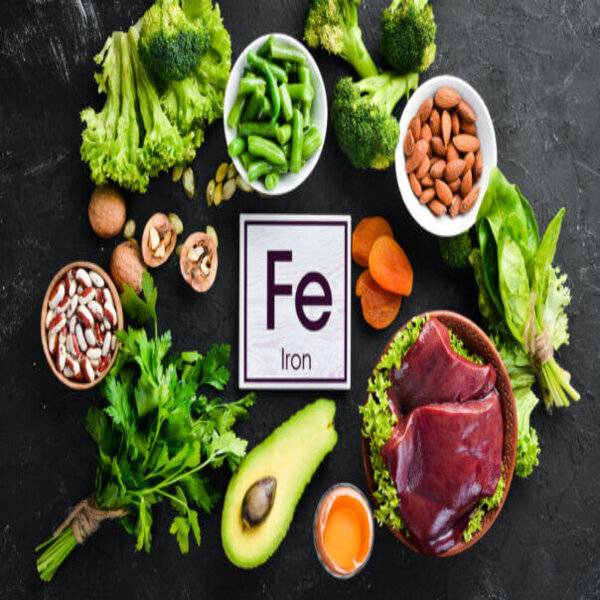In the pursuit of a healthy lifestyle, one cannot underestimate the importance of iron, an essential mineral that plays a crucial role in maintaining our well-being. From facilitating the transportation of oxygen throughout our bodies to supporting our metabolism and immune function, iron is undeniably vital for our longevity. There are various ways to ensure an adequate iron intake, including supplementation or naturally incorporating iron-rich foods into our diets.
Dismissing the significance of iron in our diet can have dire consequences. A deficiency in iron can lead to impaired cognitive abilities, reduced energy levels, and memory recall issues, among other concerns. Thankfully, recent research has shed light on the positive impact of consuming iron-rich foods on preventing heart disease. Furthermore, a diet rich in iron has been linked to sharper cognitive abilities and improved concentration. It is imperative to acknowledge that iron deficiency remains the most common nutritional disorder globally and demands attention regardless of age.
Notably, a recent study has revealed alarming findings about iron deficiency anaemia among older adults. This condition not only results in weaker muscles but also doubles the risk of death. Particularly concerning is the discovery that, in women, the risk of mortality is further doubled when both conditions coexist. Such a significant increase in risk warrants close clinical monitoring and intervention.
Given the serious risks associated with iron deficiency, it is crucial to maintain a diet abundant in this essential nutrient. To assist in identifying the best sources of iron, we have curated a list of expert-approved foods that can supplement various dietary needs while naturally boosting iron levels from the outset. Feel free to share your thoughts and favourite iron-rich foods in the comments below!
The Ultimate List of Iron-Rich Foods, Backed by Experts
1. Nutrient-Rich Oysters
Oysters, known for their culinary delicacy, offer more than just exquisite taste. Packed with omega-3 fats, zinc, protein, and, of course, iron, oysters are a nutritional powerhouse. Just six oysters can fulfil a remarkable 44 percent of our daily iron needs, thanks to their excellent bioavailability.
Beyond being rich in iron, oysters support heart health and combat inflammation. A mere three ounces of oysters provide an impressive eight milligrammes of iron, making them a top contender for iron-rich foods. Enhance iron absorption by drizzling some lemon juice on them for added flavour and a boost of vitamin C.
As shellfish, oysters are not only nutritious but also a sustainable food source. For those looking to reduce red meat consumption, oysters offer a leaner and more environmentally friendly way to obtain essential iron.
2. The Mighty Beef Liver
Compared to oysters, beef liver nearly doubles the iron saturation, with roughly 28 percent of our daily iron intake found in a serving of pan-fried beef liver. Additionally, beef liver contains heme iron, the form most readily absorbed by our bodies.
Besides supporting muscle growth and repair, beef liver is a nutritional powerhouse, providing 15.2 milligrammes of iron per three-ounce serving. Though liver might not be as popular in the US as it is in other countries, it is undoubtedly one of the most nutrient-dense foods globally. Alongside a complete amino acid profile, beef liver boasts ample amounts of folate, vitamin A, and vitamin B12.
3. The Mighty Spinach
Spinach, celebrated for its association with Popeye's strength, is indeed a superfood. Just half a cup of cooked spinach can supply almost 20 percent of our daily iron needs and is an excellent source of numerous vitamins and minerals. This versatile leafy green can be incorporated into smoothies, pasta, grain bowls, and various other dishes.
Not only is spinach rich in iron, but it also offers important nutrients and protective plant compounds like folate, vitamin C, and carotenoid antioxidants. With roughly six milligrammes of iron per cooked cup, spinach stands out as the best leafy green vegetable for boosting iron levels while providing potential cancer prevention and blood sugar reduction benefits.
4. Versatile Chickpeas
Chickpeas go beyond being a typical legume and are a fantastic source of iron, providing over 20 percent of our daily iron needs per cup. Packed with essential minerals, folate, protein, and fibre, chickpeas are highly versatile, making them perfect for roasting, curries, or even cookies.
As a plant-based powerhouse, chickpeas offer a valuable source of protein and iron for vegetarians and vegans. To enhance iron absorption, pair chickpeas with foods rich in vitamin C, such as tomatoes. Additionally, combining chickpeas with high-phenolic olive oil can maximise carotenoid absorption and promote healthy digestion due to their significant fibre content.
5. Nourishing Kidney Beans
As a non-animal source of iron, kidney beans stand out as an excellent option. Apart from being rich in iron, these legumes offer a plethora of essential macro- and micro-nutrients, including protein, fibre, folate, phosphorus, potassium, magnesium, and various healthy plant compounds.
For those looking to maintain stable blood sugar levels, kidney beans' fibre content proves beneficial. By incorporating half a cup of canned kidney beans into your favourite chilli or stew, you can add 11 percent of your daily iron intake. With one cup providing a substantial 22 percent of the daily value of iron, kidney beans are a versatile addition to soups, tacos, and classic comfort food recipes.
In conclusion, iron is a fundamental element for maintaining optimal health. Whether obtained through supplementation or naturally from iron-rich foods, ensuring an adequate iron intake should be a priority for everyone. Embrace the abundance of iron-rich foods available and take the initiative to nourish your body with this vital mineral to enhance overall well-being and longevity.



No comments yet
Be the first to share your thoughts!